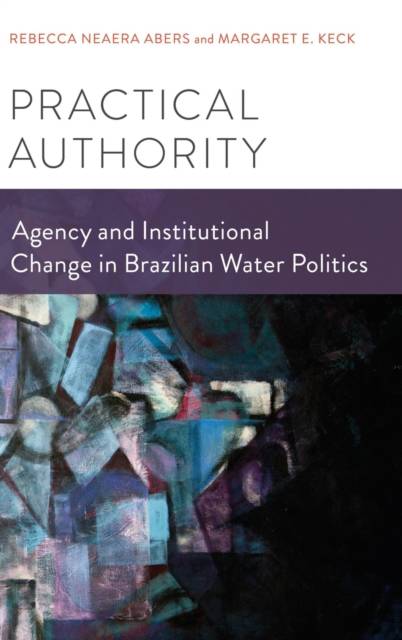
- Afhalen na 1 uur in een winkel met voorraad
- Gratis thuislevering in België vanaf € 30
- Ruim aanbod met 7 miljoen producten
- Afhalen na 1 uur in een winkel met voorraad
- Gratis thuislevering in België vanaf € 30
- Ruim aanbod met 7 miljoen producten
Zoeken
Practical Authority
Agency and Institutional Change in Brazilian Water Politics
Rebecca Neaera Abers, Margaret E Keck
Hardcover | Engels
€ 198,95
+ 397 punten
Uitvoering
Omschrijving
How do institutional arrangements established by law become operational in practice? It takes work for them to develop problem-solving capabilities and win recognition from others-what the authors call "practical authority." Drawing from a decade-long, multi-site study of efforts to transform freshwater management in Brazil, the authors show how an assortment of protagonists-from state officials to university professors to activists-struggled to breathe life into new institutional designs. Their account weaves together three decades of national and state law-making with experimentation in establishing new kinds of participatory water management organizations. Exploring this process in sixteen river basins, the authors examine why some of those organizations adapted creatively to challenges while others never got off the ground. To approach this complex, volatile, and non-linear process of transformation, the book develops a framework for investigating the actions and practices of institution-building.
Specificaties
Betrokkenen
- Auteur(s):
- Uitgeverij:
Inhoud
- Aantal bladzijden:
- 288
- Taal:
- Engels
Eigenschappen
- Productcode (EAN):
- 9780199985265
- Verschijningsdatum:
- 9/09/2013
- Uitvoering:
- Hardcover
- Formaat:
- Genaaid
- Afmetingen:
- 236 mm x 157 mm
- Gewicht:
- 626 g

Alleen bij Standaard Boekhandel
+ 397 punten op je klantenkaart van Standaard Boekhandel
Beoordelingen
We publiceren alleen reviews die voldoen aan de voorwaarden voor reviews. Bekijk onze voorwaarden voor reviews.











